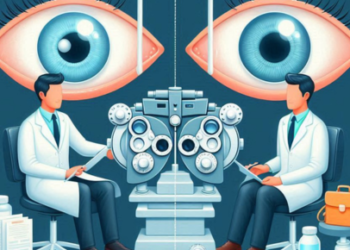Allergies can be strange and surprising. While most people think of pollen or peanuts, some people experience reactions to unexpected things. In metro detroit food allergies are a growing concern. An allergist’s insight can shed light on these unusual cases. Understanding these rare allergies helps manage them. Let’s explore some of these uncommon triggers and learn how to deal with them effectively.
Understanding Uncommon Allergy Triggers
Most are familiar with allergies to nuts, shellfish, or pollen. However, some allergies defy common knowledge. These unusual allergies can impact daily life in surprising ways. Discovering the allergen is the first step in managing symptoms.
Examples of Unusual Allergies
Here are a few examples of rare allergies that might surprise you:
- Water Allergy (Aquagenic Urticaria): This rare condition causes hives when water touches the skin.
- Cold Allergy (Cold Urticaria): Exposure to cold temperatures or swimming in cold water can trigger reactions.
- Sun Allergy (Solar Urticaria): This allergy causes the skin to break out in hives after sun exposure.
How Common Are These Allergies?
While these allergies are rare, they are very real for those affected. The following table highlights the estimated prevalence of these conditions:
| Allergy Type | Estimated Prevalence | Common Triggers |
| Aquagenic Urticaria | Less than 100 cases worldwide | Water contact |
| Cold Urticaria | 0.05% of the population | Cold air, cold water |
| Solar Urticaria | 0.5% of the population | Sun exposure |
Managing Unusual Allergies
Managing these allergies often requires lifestyle adjustments. Here are three key strategies:
- Avoidance: Identify and avoid triggers whenever possible.
- Medical Guidance: Consult with an allergist to explore treatment options. This might include antihistamines or other medications tailored to specific needs.
- Emergency Preparedness: Have an action plan for unexpected reactions, including carrying any necessary medications.
The Role of an Allergist
An allergist can provide valuable support in diagnosing and managing unusual allergies. They can offer testing and advice on treatment options. For more information on allergy testing, visit the National Institute of Allergy and Infectious Diseases for up-to-date guidelines and resources.
Research and Future Directions
Research into unusual allergies is ongoing. Scientists are working to understand these conditions better and find new ways to treat them. Continuous study helps improve the quality of life for those affected. For the latest research developments, you can check resources from reputable institutions such as the Centers for Disease Control and Prevention.
Conclusion
Unusual allergies may be rare, but they are not to be overlooked. With the right care and guidance, managing these allergies becomes more manageable. An allergist’s expertise is invaluable in navigating these conditions and finding the best strategies for living comfortably despite them.










